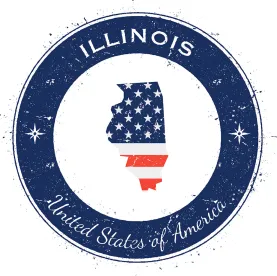On January 10, 2023, Illinois legislature passed the Paid Leave For All Workers Act (the “Act”), which requires Illinois employers to provide at least 40 hours of paid leave per year to be used for any reason. Governor Pritzker announced that he will sign the Act into law, making it effective on January 1, 2024. This is a major update for Illinois employers and will provide most Illinois employees with paid leave that may be used for any reason. The key provisions of the Act are the following:
Covered Employers
The definition of employer in the Act is borrowed from the Illinois Wage Payment and Collection Act (“IWPCA”). The Act will apply to all private sector employers of all sizes and state and local governments. The Act does not apply to school districts organized under the School Code or park districts organized under the Park District Code.
Covered Employees
The definition of employee under the Act is also borrowed from the IWPCA. The Act applies to all employees, with the exception of: (1) those in the federal Railroad Unemployment Insurance Act and Railway Labor Act; (2) certain student employees; and (3) short-term higher education employees.
Leave Usage
Employees will be able to begin using paid leave either 90 days after the beginning of their employment or 90 days after the effective date of the Act, whichever is later.
Accrual, Frontloading, and Carryover of Leave
Employees will accrue one hour of paid leave for every 40 hours worked, up to 40 hours per year. Accrual will either begin at the commencement of employment or January 1, 2024, whichever is later. Employers may also instead choose to frontload 40 hours of paid leave (or the pro rata amount of what the employee would earn if accrued during the year) on the employee’s first day of employment or on the first day of a designated twelve-month period.
Covered employees may carry over any accrued, unused paid leave at the end of the year. However, employers that choose to frontload the minimum number of hours of paid leave are not required to allow employees to carryover paid leave from year to year. If an employer provides for carryover of paid leave, it may limit an employee’s use of paid leave to 40 hours per year.
Reasons for Use and Required Notice
Paid leave may be taken for any reason. Employees are not required to provide employers with a reason for their choosing to take leave and employers cannot require employees to provide documentation or certification to in support of their leave.
However, if an employee’s use of paid leave is foreseeable, an employer may require the employee to provide 7 calendar days’ notice before the leave is taken. If the employee’s use of leave is not foreseeable, the employee must provide notice as soon as practicable. If an employer chooses to require notice of leave when leave is not foreseeable, it must provide a written policy that contains the procedures for an employee to provide such notice.
Recordkeeping
Employers are required to create and maintain records documenting hours worked, leave accrued and taken, and remaining paid leave balances for at least three years. Employers must also allow the Illinois Department of Labor (“IDOL”) access to the records. Employers that provide leave on an accrual basis must provide notice of the amount of leave accrued or used by an employee upon request by the employee.
Posting Requirements
Employers must post, in an area where other notices are customarily posted, a notice that summarizes the requirements of the Act and provides information on filing a charge with the IDOL. The notice will be prepared by the IDOL. Employers that have workforces comprised of a significant portion of workers who are not literate in English must request a separate notice from the IDOL. Violations of the posting requirements will subject employers to a penalty of $500 for the first violation and $1,000 for each subsequent violation.
Retaliation
The Act prohibits employers from taking adverse action against employees for: (1) exercising their rights under the Act; (2) opposing practices the employee believes to be in violation of the Act; or (3) supporting others’ exercise of their rights under the Act. The Act also prohibits employers from considering the use of leave under the Act as a negative factor in employment decisions concerning discipline, promotion, or evaluation.
Penalties
Employees may file a complaint with the IDOL within three years of an employer’s alleged violation of the Act. Employers found to have violated the Act are subject to actual damages, compensatory damages, attorneys’ fees/costs, civil penalties, and equitable relief. Additionally, an employer that violates the Act will also be subject to a civil penalty of $2,500 for each separate offense.
Employers with operations in Illinois should review their current leave policies for compliance with the Act in advance of the January 1, 2024, effective date.





 />i
/>i

